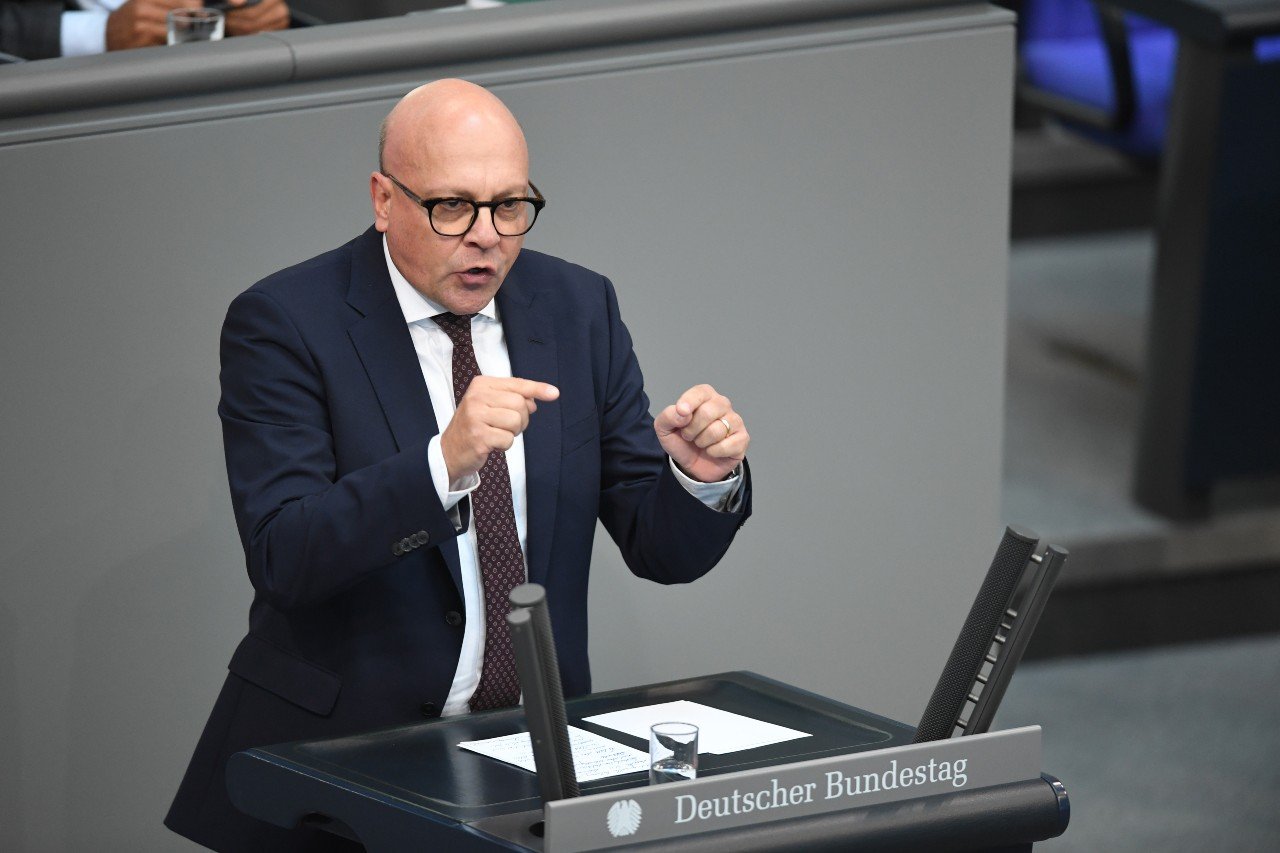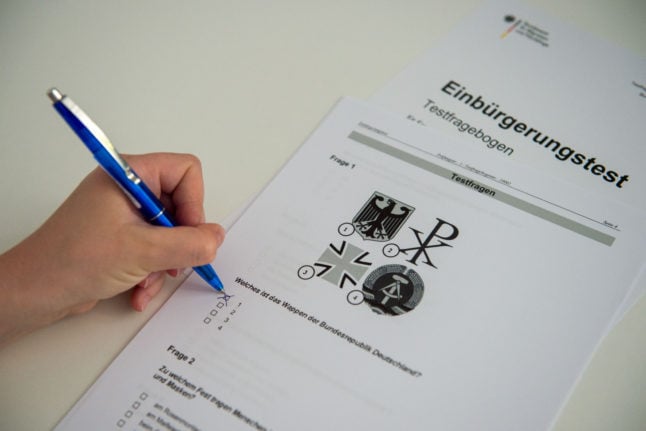Almost everyone who goes through the naturalisation process in Germany has to pass what’s known as a citizenship test, or Einbürgerungstest. This German-language exam contains 33 questions that are selected from a catalogue of 300 general questions, plus 10 questions related to your home state.
The topics cover everything from German history, politics and the German way of life, and applicants have to get at least 17 questions right in order to pass.
Soon, however, the topics will get even broader. According to reports in German news magazine Der Spiegel, the Interior Ministry has drafted 12 new questions that they want to add to the test in the near future, tackling the prevalent issue of anti-Semitism and Germany’s relationship with Israel.
These new questions will be made official by a new ordinance from the Ministry of Interior, and will then be added to the range of questions that can be selected as part of the 33-question test.
The list of questions revolve around Germany’s Jewish community, with topics such as the Holocaust, anti-Semitism and the history of Israel all set to be included in the test.
One question, for example, asks how long ago the first Jews arrived in what is today known as Germany, while another questions how Holocaust denial is punished in Germany.
To see the full list of questions obtained by Spiegel, see our explainer below:
REVEALED: The new questions being added to Germany’s citizenship test
Why is Germany adding new questions to the citizenship test?
Since the terrorist group Hamas carried out its brutal attacks on Israeli civilians on October 7th, 2023, anti-Semitism has been firmly in the spotlight in Germany.
As well as clamping down on pro-Palestinian demonstrators, the German government has been under pressure to tighten up its citizenship rules in order to prevent anti-Semites becoming naturalised as Germans.
This was one of the key issues that held up Germany’s sweeping reform of citizenship rules in autumn last year.
Politicians from the right-wing CDU and CSU parties have repeatedly argued that anti-Semitism was “imported” into Germany by Turkish and Arab communities, and have called for anti-Semites to be stripped of citizenship and barred from ever obtaining it.
In response, the government opted to give citizenship offices new powers to contact public prosecutors and investigate whether crimes committed by foreigners had any racist or anti-Semitic motives.
READ ALSO: Could Germany strip citizenship rights from foreigners over anti-Semitism?
The coalition also pointed to a clause contained in the new law that is designed to exclude people who commit “racist, anti-Semitic and dehumanising acts” from naturalising as Germans. This represents a significant tightening of the law, they argued.

Speaking to Spiegel on Tuesday, Interior Minister Nancy Faeser (SPD) revealed that the new citizenship questions were designed with the same aim in mind.
“Our special responsibility to protect Jews and the state of Israel stems from the German crime against humanity of the Holocaust,” she said. “This responsibility is part of our identity today.”
Anyone who wants to become German must know “what this means and acknowledge Germany’s responsibility” and must make this commitment “clear and credible”.
That is why the naturalisation test is now being changed in line with the law on citizenship, Faeser explained.






 Please whitelist us to continue reading.
Please whitelist us to continue reading.
Member comments